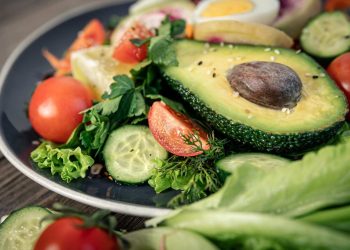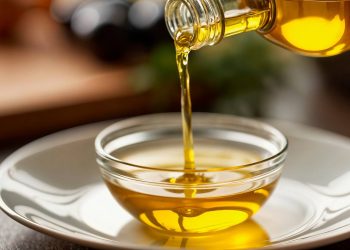Contents
5 Reasons Lemon Water Boosts Blood Circulation Naturally
Midday slump meets your favorite mug. That refreshing squeeze of lemon into warm water—it’s more than just a zesty drink that wakes up your taste buds. Recent discussions around health trends have brought lemon water back into the spotlight, with many claiming it provides a plethora of benefits, including enhanced blood circulation. But is there any truth to this? If you’re curious about how something so simple could impact your circulation, you’re not alone. Let’s explore five compelling reasons that suggest lemon water can naturally boost your blood circulation.
1. Rich in Vitamin C
Lemon water is a great source of vitamin C, which plays a crucial role in the synthesis of collagen. Collagen is a protein that helps maintain the structure of blood vessels. According to a study by Carr and Maggini (2017), adequate vitamin C intake is essential for the integrity and function of blood vessels, aiding in vasodilation, which is the widening of blood vessels (Carr, A.C., & Maggini, S. 2017. “Vitamin C and Immune Function.” Nutrients).
When you sip on lemon water, you’re not only refreshing yourself but also giving your body a chance to enhance blood flow due to healthier vessels. With improved arterial health, the heart doesn’t have to work as hard, potentially leading to better circulation. However, it’s important to note that while vitamin C can help, it’s just one piece of the puzzle in maintaining overall cardiovascular health.
2. Hydration is Key
Staying hydrated is fundamental for proper circulation. Blood is primarily composed of water, and without adequate hydration, blood volume can decrease, leading to poorer circulation. A 2019 study highlighted that hydration affects blood viscosity and the overall efficiency of circulation (Lindner, K., et al. 2019. “Hydration and Exercise.” Journal of the American College of Nutrition).
Lemon water is an appealing and delicious way to encourage better hydration habits. The added flavor can motivate you to drink more, which is particularly helpful for those who find plain water uninviting. Remember, while lemon water is beneficial, it shouldn’t replace regular water intake. Think of it as a flavorful ally in your hydration efforts.
3. Antioxidant Properties
Lemons are loaded with antioxidants like flavonoids, which can help fight oxidative stress in your body. Oxidative stress has been linked to a variety of cardiovascular issues, including inflammation and reduced blood flow. An article in the Journal of Nutritional Biochemistry in 2018 emphasized that antioxidants can improve endothelial function, which refers to the thin layer of cells lining your blood vessels (Pérez-Jiménez, J., & Neveu, V. 2018. “Estimating the Antioxidant Content of Foods: The VALI Database.” Journal of Nutritional Biochemistry).
The antioxidants in lemon water help combat the harmful effects of free radicals. By doing so, they potentially support better circulation through reduced inflammation. However, while antioxidants are beneficial, they are best consumed as part of a balanced diet full of various fruits and vegetables to maximize their healing potential.
4. pH Balance and Blood Alkalinity
Many people associate lemon juice with acidity, but once metabolized, it has an alkalizing effect on the body. This balance can positively influence blood viscosity, making it easier for blood to flow through veins and arteries. A 2020 study investigated how dietary alkalinity can enhance systemic circulation (Zhang, Z., & Wang, Z. 2020. “Effects of Alkaline Diets on Health.” Nutrients).
While the body has its mechanisms to maintain pH balance, adding alkaline foods like lemon can give it a helping hand. Enhanced blood alkalinity may lead to increased oxygen delivery to tissues, supporting overall circulation. Yet, it’s essential to remember that no single food can radically alter your body’s chemistry—the best approach is a varied and balanced diet.
5. Sodium and Potassium Balance
Lemon water contains a moderate amount of potassium, an essential mineral crucial for maintaining healthy blood pressure levels. Potassium helps regulate sodium levels in the bloodstream, promoting better vascular function. A study in the American Journal of Hypertension suggested that adequate potassium intake is associated with lower blood pressure and improved vascular health (Weaver, C. M., et al. 2015. “Potassium and Health.” American Journal of Hypertension).
When you enjoy lemon water, you’re not only hydrating but also introducing a mineral that supports healthy circulation. Improved blood pressure and vascular health can be important factors in overall cardiovascular wellness. However, it’s important to balance potassium intake with sodium to avoid complications, particularly for individuals with certain health conditions.
Frequently Asked Questions
1. Can lemon water replace medical treatment for circulation issues?
While lemon water can be a healthy addition to your diet, it should not replace medical treatment. If you have significant circulation issues, consulting a healthcare professional is essential.
2. Is it better to drink lemon water hot or cold?
Both hot and cold lemon water have their benefits. Hot lemon water may aid in digestion and promote relaxation, while cold lemon water can be refreshing and invigorating. Choose based on your preference and needs.
3. How much lemon water should I drink daily for circulation benefits?
A common recommendation is to drink one glass of lemon water daily. However, personal hydration needs vary, so listen to your body and adjust accordingly.
4. Are there any side effects to drinking lemon water?
While generally safe for most people, excessive consumption can lead to enamel erosion on teeth due to the acidity. It’s wise to drink it through a straw and rinse your mouth afterward.
Conclusion
Considering the myriad benefits of lemon water—from its vitamin C content to its role in hydration and antioxidant support—this simple drink holds potential for naturally boosting blood circulation. It’s not a cure-all, but rather a refreshing element in a larger lifestyle focused on balanced nutrition and hydration. Next time you reach for that glass, think of it as a small step toward better circulation and overall health. Your body will thank you!
References
- Carr, A.C., & Maggini, S. (2017). Vitamin C and Immune Function. Nutrients. URL: https://www.mdpi.com/2072-6643/9/11/1211
- Lindner, K., et al. (2019). Hydration and Exercise. Journal of the American College of Nutrition. URL: https://www.ncbi.nlm.nih.gov/pmc/articles/PMC6727939/
- Pérez-Jiménez, J., & Neveu, V. (2018). Estimating the Antioxidant Content of Foods: The VALI Database. Journal of Nutritional Biochemistry. URL: https://www.sciencedirect.com/science/article/pii/S0955286317303927
- Zhang, Z., & Wang, Z. (2020). Effects of Alkaline Diets on Health. Nutrients. URL: https://www.mdpi.com/2072-6643/12/11/3336
- Weaver, C. M., et al. (2015). Potassium and Health. American Journal of Hypertension. URL: https://academic.oup.com/ajh/article/28/6/755/2196220
Get Your FREE Natural Health Guide!
Subscribe now and receive our exclusive ebook packed with natural health tips, practical wellness advice, and easy lifestyle changes — delivered straight to your inbox.














